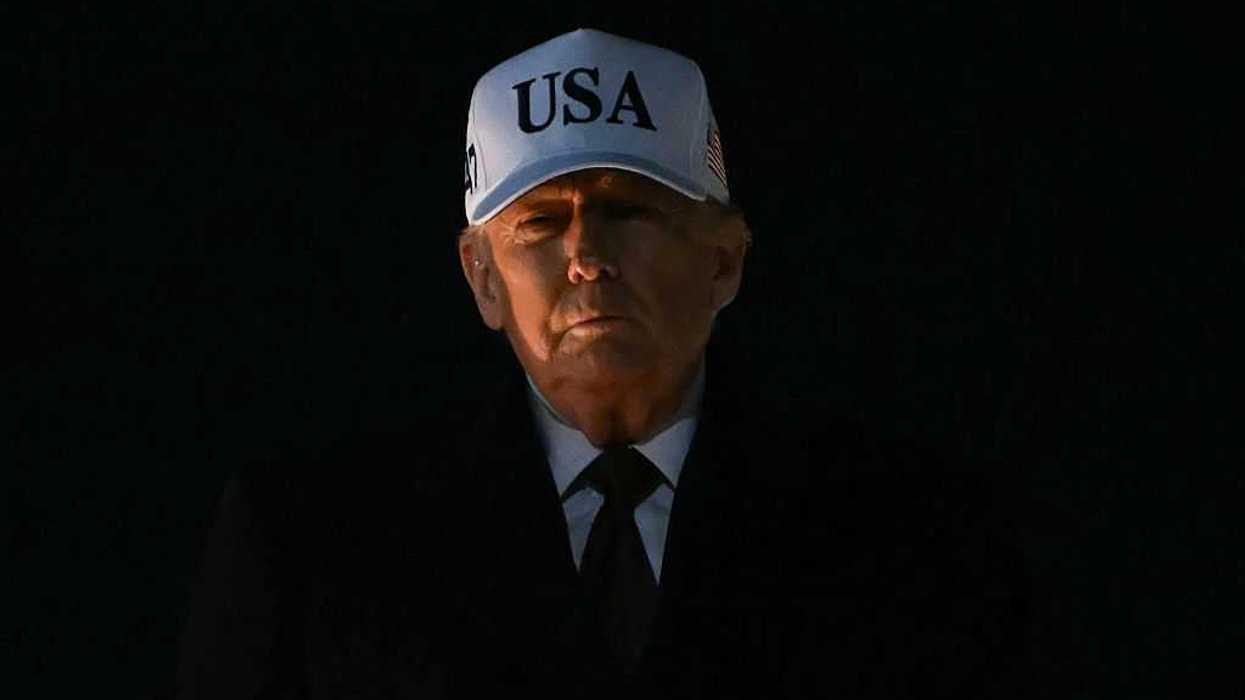
© 2026 Blaze Media LLC. All rights reserved.
“It is simple math,” my father said. “Money comes in. Money goes out. What is left over is profit!” My first lesson on how to run a business was nothing short of a simple math lesson. Surely such a mathematically defined economic principle could be understood by anyone, I thought.
Yet for some reason governments, in general, don’t seem to understand this principle. Perhaps it is because governments forget they don’t actually earn money. They don’t invest, for they are not a producer of anything. They simply transfer money. They take from one and give to another hoping it will stimulate movement somehow. But that movement, if it occurs, comes at a price. One loses. One receives. And both are not made better off. Unlike private exchanges, in the government transfer, wealth is not created. In fact, wealth can be and is often destroyed when governments get involved.
Governments indeed have the dubious distinction of being a source of wealth destruction. As we have witnessed in Europe, their “take from the rich, give to the poor” notion of a business is problematic and unsustainable at best, and fraudulent and even criminal at worst. It often starts with the government promise to receive something for nothing. In Greece, the promise was an all expense paid early retirement. Live long and prosper free of charge. In Spain, Portugal, and Italy it was the promise to work at unsustainable wage rates without the possibility of cost concession in times of economic distress. Even here in the U.S. we have not been immune to the making of such unsustainable promises. With the cleaver use of a little known or understood legislative device called “reconciliation,” our government has now promised everyone the finest healthcare in the world without increased costs. Again, live long and prosper free of charge.
We all know such false promises can’t be sustained in our own homes. The very thought of something for nothing is a sophomoric mistake and something we learn to reconcile in our own lives at a young age or we end up on the wrong side of a jail cell. So why do we think governments are different?
Federal Reserve Chairman Ben Bernanke told Congress this past week that he expected the economy to expand moderately this year. Yet in the same breath he noted “the recovery faces major risks from both the worsening European crisis and a confluence of expected tax increases and spending cuts at year’s end." Was anybody listening? He acknowledged the possibility of using more monetary tools to help the economy, but in a final plea to Congress he noted, “I’d be much more comfortable if Congress would take some of this burden from us.”
His observations were succinct and his plea was simple. Europe has the potential to implode causing a domino affect for the global economy, and raising taxes while cutting spending at home will create a major risk for another recession. In short, we must get our economic house in order and recognize the powder keg that is Europe.
But was anybody listening?
Admittedly, Europe is dealing with an economic mess. Bailing out Greece, if they could fully do it, creates the moral hazard that other countries will follow. The money train will have to make stops in Italy, Spain, Portugal, and the list will grow as “free money” is doled out. Social unrest calling for less austerity and more indulgence can only increase as the payouts fan the flames of “something for nothing." If history is any indicator, economic sovereignty will begin to be questioned as countries ask for more money with no strings attached. European states will each claim to be “too big to fail” and Germany will be demonized for requiring too much for the money they loan. Individual countries will have to determine whether it is in their self-interest to stay with the Euro and part of the community or go it alone.
In the alternative, perhaps Germany and other self-sustaining European countries should cut their losses and get out now before the money train leaves the station and European wealth evaporates. While the economic impact of such a move would be similar to a bank closing before it loses any money, it could have the effect of causing a run on all other banks. European countries would financially isolate themselves to wait out the storm and weigh their options. Countries like the Netherlands, France, and Germany could find safety in their financial bunkers. The more fragile economies of Greece, Spain, Italy, and Portugal would be forced to weather the storm above ground, subject to the full force and fury of the anarchists and social revolutionaries who often use such events as a rallying cry for their cause. Again, if history is any indicator, shortages would lead to more natural austerity and more social unrest. And as we have seen, the rest is history!
What is likely to occur? Germany will spend more than it should and less than it could. Greece and other similarly situated countries will fight austerity, take what they can get, and demonize their lenders. They will push to the line but back off when they are on the brink. The European crisis will linger and languish for years, and history will repeat itself time and again. Large centralized governments will continue to promise something for nothing and kick the can down the road to another generation.
And lest you think we are only speaking of Europe here. Think again!
David L. Buckner is an economist, professor, and author of "Permission to Think."
Want to leave a tip?
We answer to you. Help keep our content free of advertisers and big tech censorship by leaving a tip today.
Want to join the conversation?
Already a subscriber?
more stories
Sign up for the Blaze newsletter
By signing up, you agree to our Privacy Policy and Terms of Use, and agree to receive content that may sometimes include advertisements. You may opt out at any time.
Related Content
© 2026 Blaze Media LLC. All rights reserved.
Get the stories that matter most delivered directly to your inbox.
By signing up, you agree to our Privacy Policy and Terms of Use, and agree to receive content that may sometimes include advertisements. You may opt out at any time.






